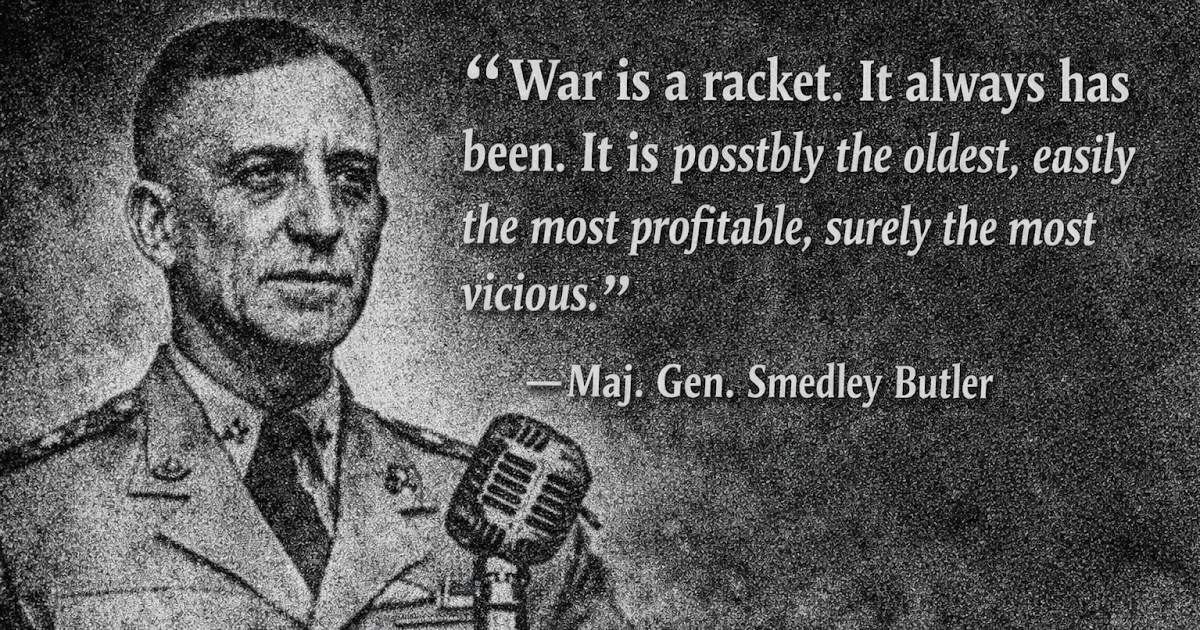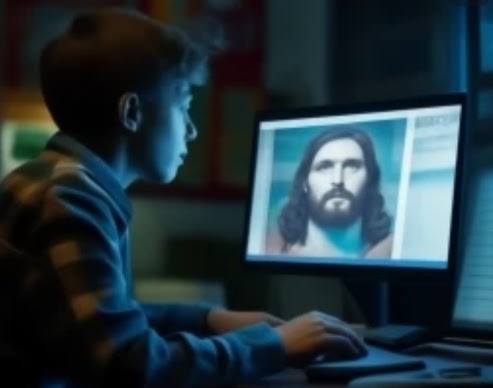As online education becomes an ever-expanding force in both K-12 and higher education, a disturbing trend has emerged with the rise of Christian cybercharter schools and online academies. While these institutions promise faith-based education and an alternative to secular public schooling, they also raise serious concerns about indoctrination, the commodification of education, and the profit-driven motives of their for-profit operators. For many families seeking an education aligned with their Christian values, these digital platforms offer an attractive solution. However, as the lines between faith-based learning and corporate interests blur, the question remains: what are we sacrificing in the pursuit of religiously guided education?
The Growing Influence of Christian Cybercharters
Christian cybercharter schools are part of a broader trend in which private, for-profit companies deliver education to students via online platforms. These schools, often designed to serve as alternatives to secular public education, integrate Christian teachings into core subjects such as history, science, and literature. While these schools may offer a semblance of flexibility for students in rural areas or families dissatisfied with traditional schooling, their model poses unique challenges.
Cybercharter schools are, by definition, public schools that operate entirely online and are funded with taxpayer dollars. Yet, the rise of Christian cybercharters, run by private companies, complicates the traditional understanding of education. These institutions, rather than simply providing secular education, often incorporate Christian teachings into all aspects of learning. Students may study math, science, and history through a Christian lens, learning creationism instead of evolution or receiving a heavily filtered view of history. In some cases, controversial issues such as LGBTQ+ rights and reproductive health are taught in ways that align with conservative Christian values, potentially ignoring or dismissing broader social, legal, and ethical considerations.
While these schools may appeal to parents seeking religiously grounded education for their children, concerns about the quality of education and the potential for indoctrination are mounting. Instead of offering an objective, well-rounded academic experience, these institutions may turn into ideological factories, promoting a singular worldview at the expense of critical thinking, intellectual curiosity, and open-mindedness.
James Loewen’s Lies My Teacher Told Me: Everything Your American History Textbook Got Wrong serves as a cautionary tale when examining the educational landscape shaped by these faith-based online programs. In his book, Loewen critiques the sanitized, biased versions of American history often taught in public schools—narratives that ignore uncomfortable truths about racism, inequality, and colonialism. This phenomenon is mirrored in some Christian cybercharters, where history is frequently reinterpreted to promote a specific religious or political agenda, potentially leaving students with a distorted, incomplete understanding of the world. The difference here, of course, is that rather than the state pushing a particular narrative, these programs are driven by religious agendas that prioritize faith-based views over academic rigor and historical accuracy. Just as Loewen critiques the “lies” of public school textbooks, one could argue that these Christian educational platforms sometimes present a faith-filtered version of reality—one that aligns more with ideological conformity than intellectual exploration.
The Profit Motive: Corporations, Private Equity, and the Business of Faith-Based Education
At the heart of the Christian cybercharter movement is a growing involvement of private equity firms and publicly traded companies eager to profit from the expanding online education sector. Venture capitalists have increasingly poured investments into education technology companies, including Christian online platforms. As a result, more and more online education providers—particularly Christian cybercharter schools—are becoming businesses in the traditional sense, with financial returns prioritized over educational outcomes.
Much like other for-profit charter schools, these Christian cybercharters face the same pressures to maximize revenue. While proponents of this model argue that parents should have the option to select an education aligned with their values, critics argue that profit-driven motives overshadow educational quality. In many cases, the companies running these online schools are more focused on expansion, enrollment, and financial performance than on fostering critical thinking or providing a rigorous, well-rounded education.
In the case of for-profit Christian cybercharters, this business model often leads to a corporate agenda that prioritizes market share rather than genuine educational development. Whether or not these schools offer the best or most effective education is secondary to their role as vehicles for profit. Furthermore, because many of these institutions are delivered through online platforms, the lack of direct teacher-student interaction and oversight further diminishes the opportunity for intellectual debate and inquiry.
Indoctrination vs. Education: The Risks of Religious-Based Learning
One of the most significant concerns with Christian cybercharters is the potential for indoctrination. Unlike secular education, where students are encouraged to explore various ideas, form their own opinions, and critically engage with the material, Christian cybercharters often deliver content that aligns solely with religious teachings. In many cases, students are not encouraged to question or challenge the material they are given, but rather to accept it as the unquestionable truth.
For example, in science courses, students may be taught creationism in place of evolution or may receive instruction that contradicts widely accepted scientific principles. In history classes, there may be a deliberate effort to present historical events through a Christian lens, prioritizing religious interpretations and avoiding broader, secular understandings. This framing can affect the way students understand the world and interact with it, teaching them to see things in a way that aligns with specific religious views, rather than providing them with the tools to critically evaluate the world around them.
Loewen’s Lies My Teacher Told Me warns of the dangers of sanitized history education. The same critique can be applied to some Christian online academies. Just as Loewen highlights how mainstream textbooks gloss over the uncomfortable truths of American history—such as the treatment of Native Americans or the legacy of slavery—Christian cybercharter schools may whitewash history to fit a specific theological or political narrative. Students may learn that America is a “Christian nation,” without an in-depth exploration of the diversity of belief systems that have shaped the country, or the ways in which Christianity’s role in history has been contested and debated. The problem arises when children, instead of being equipped to navigate complex historical realities, are taught to passively accept an ideological version of the past.
When education becomes synonymous with religious indoctrination, the line between objective knowledge and belief becomes dangerously blurred. Students are taught not to think critically about their beliefs or values but to accept them as fact, leaving little room for exploration, dialogue, or intellectual growth. The digital environment, where much of the learning takes place through pre-recorded lessons and automated grading systems, exacerbates this issue by limiting opportunities for meaningful teacher-student interaction.
The Corporate Takeover of Higher Education: Robocolleges and Faith-Based Learning
The influence of private companies and venture capital isn’t just limited to K-12 education. As online education expands, the model of faith-based learning is also infiltrating higher education. Many institutions are now offering Christian-based online degree programs, promising students a “Christian worldview” in subjects ranging from business to theology. While these programs may appeal to individuals seeking a religiously informed education, they raise concerns about the quality and breadth of education students receive.
The rise of “Robocolleges”—virtual universities run by corporations that offer online degrees—is another manifestation of the growing corporate control over education. These online programs, often funded by investors looking for high returns, can prioritize cost-efficiency and marketability over rigorous academic standards. In the case of faith-based online institutions, the goal can shift from providing a comprehensive education that challenges students to think critically about the world, to creating a narrow ideological framework where students are encouraged to see the world solely through the lens of Christianity.
In this environment, the rise of “Robostudents”—individuals who navigate education through algorithms and automated platforms—further deepens the risk of creating a generation of individuals who are highly specialized but lack the broad intellectual and social competencies needed to thrive in a diverse world.
Christian Robokids: The Future of Digital Indoctrination
A particularly concerning aspect of the rise of Christian cybercharters and online academies is the emergence of Christian Robokids—students who, in addition to receiving a faith-based education, are increasingly immersed in a highly automated, digital, and corporate-driven learning environment. As Christian cybercharters adopt more sophisticated AI and data-driven learning platforms, children may begin to engage with content not only through pre-recorded lessons but through AI-powered tutors and personalized learning paths that adapt to each student’s “progress.” While this may sound appealing in theory, it opens the door for a future in which students are not only learning religious doctrine but are also being trained to conform to predetermined educational frameworks, shaped more by corporate interests than intellectual freedom.
Christian Robokids would navigate a digital education system where their learning is increasingly controlled by algorithms designed to maximize efficiency and profitability. These students could interact with content tailored to reinforce a singular religious viewpoint, with little to no exposure to diverse perspectives. In a world of Robokids, students might not engage in real discussions with teachers or peers, but instead follow rigid, automated curriculums. Their development into “robostudents” is further cemented by the complete absence of opportunities for face-to-face interaction, debate, and critical engagement with differing worldviews.
Moreover, the lack of teacher oversight in an entirely virtual system means that students may miss out on developing social and emotional intelligence, important for engaging in the complex, pluralistic world beyond the screen. The robotic nature of learning—where students become passive recipients of information rather than active participants—poses long-term risks to the intellectual and social development of children in these environments.
The Biggest Christian Online Academies
Several major Christian online academies are leading the charge in this digital faith-based education landscape, offering K-12 programs that blend academic rigor with Christian values. These academies not only cater to homeschool families but also serve as alternatives to public school systems, providing religiously grounded curricula that focus on both intellectual development and spiritual growth. Some of the largest and most well-known Christian online academies include:
-
Liberty University Online Academy – This academy offers a comprehensive K-12 online program with a strong focus on biblical teachings alongside standard academic subjects. Liberty University, a major Christian institution, has established a reputation for delivering accredited programs that combine faith and learning.
-
BJU Press Online Academy – Known for its biblical integration and classical Christian education approach, BJU Press offers a fully accredited K-12 online program that focuses on a Christ-centered worldview while delivering high-quality academics.
-
Alpha Omega Academy (AOP) – A significant player in the Christian homeschooling space, AOP’s online academy offers a customizable, accredited K-12 curriculum. Its flexible approach allows families to integrate Bible-based teachings into core subjects.
-
The King’s Academy – A Christian online school that blends academic excellence with spiritual development, providing a biblically integrated curriculum from kindergarten to high school.
-
Veritas Scholars Academy – Known for its classical Christian education model, Veritas offers online courses with a focus on critical thinking, intellectual development, and biblical integration for students in K-12.
These online academies reflect the growing demand for faith-based education in the digital era, offering flexible options for families who prioritize both academic excellence and spiritual growth. However, as these institutions scale and continue to integrate new technologies, the risk of further corporate influence and educational homogenization grows, raising questions about the long-term impact on students’ ability to think critically and engage with a diverse world.
The Danger of “Garbage In, Garbage Out” in Faith-Based Education
A worrying byproduct of the corporate-driven Christian cybercharter model is the “Garbage In, Garbage Out” phenomenon. Just as for-profit companies may prioritize profits over educational outcomes, so too does this model risk producing students who are poorly prepared for the real world. If the content students are being fed is biased, ideologically driven, or scientifically flawed, the result will be a generation of graduates whose knowledge is narrow, incomplete, and disconnected from the realities of an increasingly diverse and complex world.
Christian cybercharters, while offering a religious alternative to public schools, risk leaving students unprepared for intellectual challenges and social engagement. Without the opportunity to engage with diverse perspectives or develop critical thinking skills, students may find themselves ill-equipped to navigate the broader society or the ever-changing workforce.
Conclusion: The Future of Faith-Based Education
As the trend of Christian cybercharters and online academies continues to grow, the future of faith-based education remains uncertain. Will these digital platforms provide students with the academic rigor, critical thinking skills, and social understanding they need to thrive in a complex world, or will they become vehicles for ideological conformity and corporate profit? As parents and educators, it is critical to carefully evaluate these programs, balancing faith-based values with a commitment to fostering intellectual independence and a well-rounded education that prepares students for life beyond the classroom.




